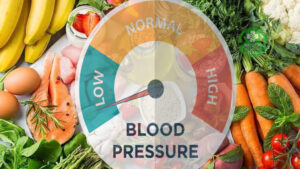Living with diabetes can be challenging, especially when your blood sugar levels are high. High blood sugar, also known as hyperglycemia, can have serious health consequences if not properly managed. In this article, we will explore the causes of high blood sugar, the potential complications, and effective strategies to bring your levels back to a healthy range. It is important to note that the information provided here should not replace professional medical advice, and it is always advisable to consult with your healthcare team.
The Causes of High Blood Sugar
Understanding the factors that contribute to high blood sugar is crucial in effectively managing diabetes. Here are some common causes:
- Inadequate insulin dosage: Insulin is a hormone that helps regulate blood sugar levels. If you are not taking enough insulin or your body is not responding properly to it, your blood sugar can rise.
- Carbohydrate-rich meals: Consuming an excessive amount of carbohydrates, especially refined sugars, can cause a spike in blood sugar levels.
- Lack of physical activity: Regular exercise helps your body use insulin more efficiently, so a sedentary lifestyle can contribute to high blood sugar.
- Stress: When you’re under stress, your body releases hormones that can increase blood sugar levels.
- Illness or infection: Some illnesses and infections can lead to high blood sugar. Your body may release extra glucose to help fight the illness.
The Potential Complications of High Blood Sugar
High blood sugar levels can have detrimental effects on your overall health. Here are some potential complications:
- Diabetic ketoacidosis (DKA): If your blood sugar levels are consistently high, your body may start to break down fat for energy, releasing ketones. High ketone levels can lead to a life-threatening condition called DKA.
- Long-term complications: Prolonged high blood sugar levels can damage various organs, including the heart, kidneys, eyes, and nerves. This can lead to serious conditions such as cardiovascular disease, kidney disease, diabetic retinopathy, and neuropathy.
- Increased risk of infections: High blood sugar weakens the immune system, making you more susceptible to infections, including urinary tract infections and skin infections.
- Delayed wound healing: Elevated blood sugar levels can impair the body’s ability to heal wounds, potentially leading to infections and other complications.
Strategies to Lower High Blood Sugar
When your blood sugar levels are high, it is important to take immediate action to bring them back within a healthy range. Here are some strategies to consider:
1. Check your blood sugar regularly
Regularly monitoring your blood sugar levels is essential for effective diabetes management. By keeping track of your levels, you can identify patterns, understand how different factors affect your blood sugar, and take appropriate action when necessary.
2. Stay hydrated
Drinking plenty of water can help flush out excess glucose from your bloodstream, potentially lowering your blood sugar levels. Aim to drink at least eight glasses of water per day, or more if recommended by your healthcare team.
3. Engage in physical activity
Exercise can help lower blood sugar levels by increasing insulin sensitivity and promoting glucose uptake by the muscles. Engage in regular physical activity, such as brisk walking, cycling, or swimming. Aim for at least 150 minutes of moderate-intensity exercise per week.
4. Adjust your insulin dosage
If you are on insulin therapy, consult with your healthcare team to determine if any adjustments are needed. They may recommend increasing your insulin dosage temporarily to help bring your blood sugar levels down.
5. Eat a balanced diet
Adopting a balanced and nutritious diet is crucial for managing blood sugar levels. Focus on consuming whole grains, lean proteins, healthy fats, and plenty of fruits and vegetables. Limit your intake of sugary and processed foods, as they can cause rapid blood sugar spikes.
6. Take prescribed medications
If you are taking oral medications to manage your diabetes, ensure that you take them as prescribed by your healthcare team. These medications can help regulate blood sugar levels and prevent complications.
7. Manage stress
Stress can significantly impact blood sugar levels. Find healthy ways to manage stress, such as practicing relaxation techniques, engaging in hobbies, or seeking support from friends and family. Consider incorporating activities like yoga or meditation into your routine.
8. Get enough sleep
Adequate sleep is essential for overall health and blood sugar management. Aim for seven to nine hours of quality sleep each night. Poor sleep can affect insulin sensitivity and lead to higher blood sugar levels.
Conclusion
High blood sugar levels can be concerning, but with the right strategies and support, you can effectively manage your diabetes. Regular monitoring, a healthy diet, physical activity, and stress management are key components of successful blood sugar control. Remember to consult with your healthcare team for personalized advice and guidance. By taking proactive steps, you can improve your overall health and reduce the risk of complications associated with high blood sugar levels.
FAQs After The Conclusion
1. Can high blood sugar levels be reversed?
Yes, high blood sugar levels can be reversed through lifestyle modifications, proper medication management, and adherence to a healthy diet and exercise routine. It is important to work closely with your healthcare team to develop a personalized plan.
2. How long does it take to lower blood sugar levels?
The time it takes to lower blood sugar levels can vary depending on several factors, such as the individual’s overall health, the severity of the hyperglycemia, and the effectiveness of the chosen interventions. It is best to consult with your healthcare team for guidance on managing your specific situation.
3. Are there any natural remedies for lowering high blood sugar?
While some natural remedies may have potential benefits in managing blood sugar levels, it is important to remember that they should not replace medical advice or prescribed treatments. Some natural remedies that may be beneficial include consuming cinnamon, fenugreek, or apple cider vinegar. However, always consult with your healthcare team before incorporating any natural remedies into your routine.
4. Can stress management techniques help lower blood sugar levels?
Yes, stress management techniques such as deep breathing exercises, meditation, and yoga can help lower blood sugar levels by reducing stress hormone release and promoting relaxation. Incorporating these techniques into your daily routine may have a positive impact on your overall blood sugar control.
5. What should I do if my blood sugar levels remain high despite my efforts?
If your blood sugar levels remain consistently high despite your efforts, it is important to consult with your healthcare team. They can evaluate your current management plan, make necessary adjustments to your medication or insulin dosage, and provide additional guidance and support to help you achieve better blood sugar control.
Summary
High blood sugar levels can have serious health implications for individuals with diabetes. It is essential to understand the causes of high blood sugar, the potential complications, and effective strategies to bring levels back to a healthy range. Regular monitoring, staying hydrated, engaging in physical activity, adjusting insulin dosage, maintaining a balanced diet, taking prescribed medications, managing stress, and getting enough sleep are key components of managing high blood sugar. By incorporating these strategies into your daily routine and working closely with your healthcare team, you can achieve better blood sugar control and reduce the risk of complications.



